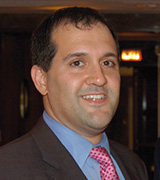A Bi-partisan Blunder in the Middle East

Endy Zemenides
The complete undoing of the Middle East – a failed “Arab Spring”, the rise of ISIS, sectarian conflicts raging out of control – have been met first and foremost with partisan bickering here in the United States. From the right, we hear that President Obama withdrew too quickly from Iraq, made Sunnis nervous because of his deal with Iran, and reacted poorly to the Arab uprisings of 2011. From the left, the Middle East is in shambles because President Bush invaded Iraq, kicking off the sectarian battle for that country and removing the one strongman (Saddam Hussein) that was an effective counterweight to Iran.
Either side could be argued with some level of intellectual honesty. Yet this debate misses a bi-partisan failure in U.S. Middle East policy, one that started nearly a century ago and even today explains our inadequate response to the convulsions in the region: the Kurdish question.
The Kurds are the region’s fourth-largest ethnic group, with an estimated thirty million Kurds residing in present-day Iran, Iraq, Syria, and Turkey. The Kurds remain one of the world’s largest populations without a sovereign state.
The Kurds have long sought their own state, and were promised one in the Treaty of Sèvres in 1920. The emergence of Mustafa Kemal and then the Treaty of Lausanne dashed the hopes of a Kurdish nation state. The Kurds then went from dispossessed to oppressed. The West stood by as the Kurds were gassed by Turkey and Iraq. After the first Persian Gulf War, President George H.W. Bush called on the Kurds to rise up against Saddam Hussein, only to watch Hussein’s forces respond with violent retribution before helping establish a safe zone. Left of center activists across the West adopted the cause of a Palestinian state, ignoring the plight of the Kurds (and in the case of the Kurds of Turkey, cheering on their oppressors as models of democracy).

Despite all of this, the Kurds have survived and thrived. The Kurdistan Regional Government – with its own armed forces, oil reserves, international airports – is responsible for the only stable part of Iraq. The Kurds of Syria have established autonomy and in effect lead the battle against ISIS in Syria. Sunni, secular, survivors, the most significant obstacle to ISIS, and they don’t hold a grudge against a century of betrayal by the West: what’s not to like about the Kurds?
Apparently, Washington is so intent on doubling down on the dysfunctional relationships with Ankara and Baghdad, that we are willing to sacrifice developing a potentially game changing relationship in the region. Former Administration officials, former military commanders and U.S. Senators take to the talk shows and press and urge getting on the same page as Turkey and accommodating Ankara’s priorities. They all work under the assumption that the top priority is the removal of Assad; what if it is – as it seems – frustrating any further Kurdish autonomy?
Presidents Bush and Obama followed a long tradition on betting on the wrong actors in the Middle East. The Shah of Iran, Saddam Hussein, Ahmed Chalabi, Nouri al-Maliki, Tayip Erdogan. Even today, neither the Obama Administration nor the majority of the American foreign policy establishment appear willing to press Turkey on giving the Kurds what they deserve (not even the Kurds of Syria): greater autonomy, if not independence. As the U.S. pushes hard for a bi-zonal, bi-communal federation, why doesn’t anyone in Washington ask why the Kurds – who make up the same percentage of Turkey’s population as Turkish-Cypriots make up of Cyprus’ and who suffered far greater travesties at the hands of Ankara than Turkish-Cypriots ever did – do not deserve a similar arrangement within Turkey. It is time that the U.S. bet on the Kurds; without some resolution to the Kurdish question, the convulsions in the Middle East will continue for the foreseeable future.











0 comments